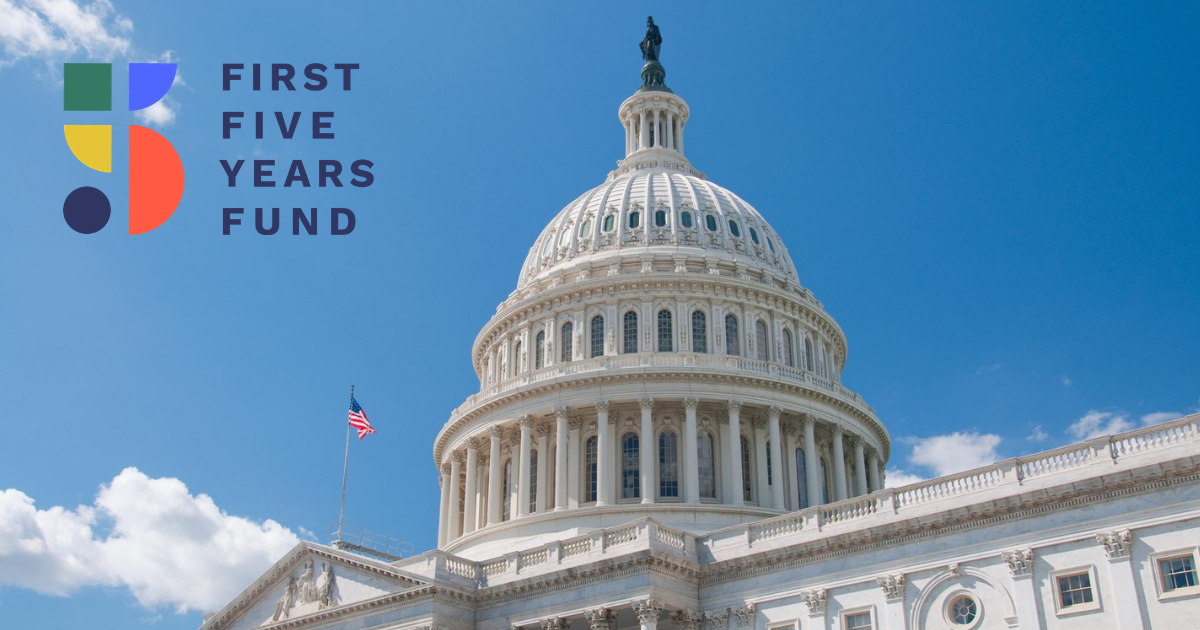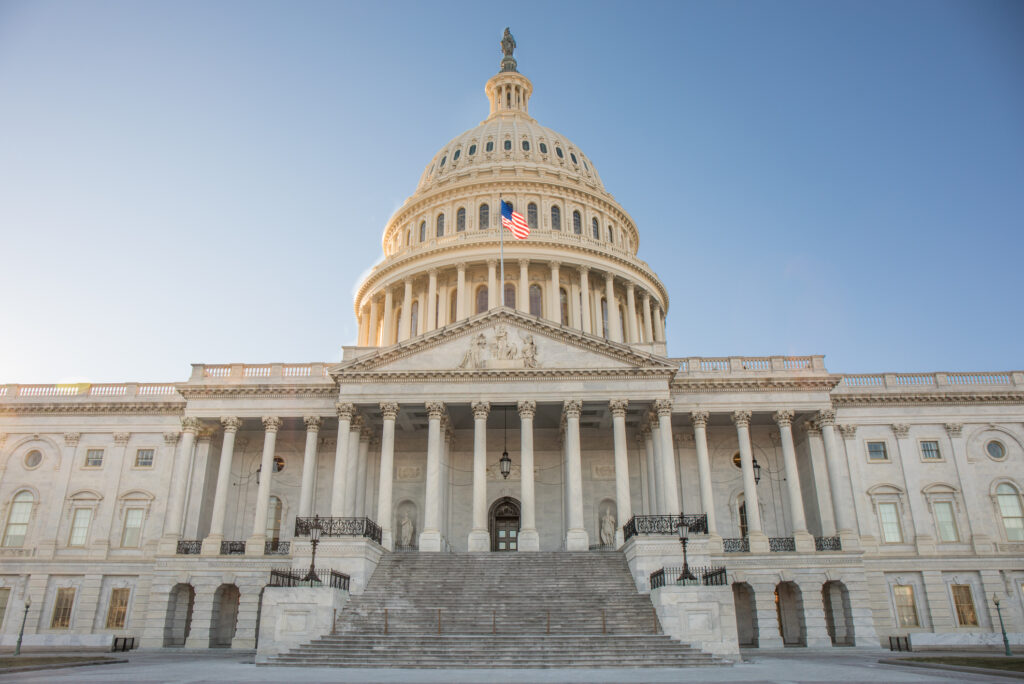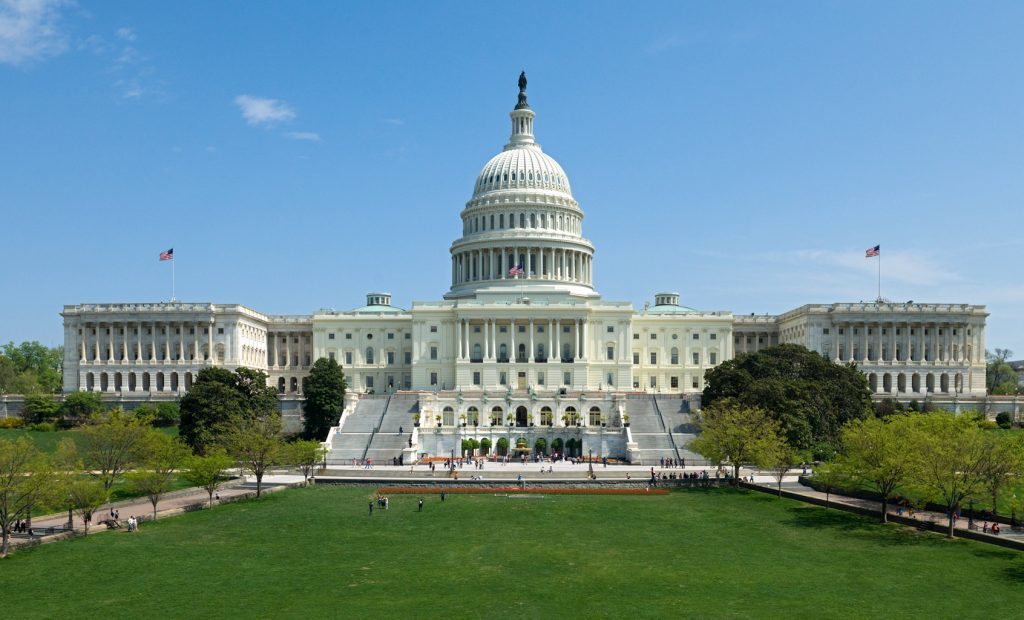House Ways and Means Committee Approves Build Back Better Act Provisions to Help Address America’s Child Care Crisis

WASHINGTON – This week, the House Committee on Ways and Means passed its portion of the Build Back Better Act, including a permanent expansion of the Child and Dependent Care Tax Credit (CDCTC) and an expansion of the expanded the Child Tax Credit (CTC), $15 billion for child care facilities, funding to establish a Child Care Information Network that offers parents up-to-date information on available child care options, and the establishment of a Child Care Wage Grant program to increase wages for child care providers, among other investments that support working families.
“Greater access to affordable, high-quality child care and early learning opportunities is key to building a robust economy and supporting working families with young children, ” said First Five Years Fund Executive Director Sarah Rittling. “Today, under the leadership of Chairman Neal, the House Ways and Means Committee advanced a legislative package that would make quality child care more attainable, save families thousands of dollars each year, and support child care providers. The Build Back Better Act seeks to address America’s child care crisis by building a strong, stable early childhood system that prioritizes parent choice and high-quality learning opportunities for children in child care and pre-k. The current situation for families and child care providers alike is completely unsustainable and will only get worse without significant, sustained support from Congress. We urge lawmakers to pass the Build Back Better Act to ensure no family is prevented from pursuing their American dream because they cannot afford child care.”
The measure passed today by the House Ways and Means Committee contains several provisions to address the child care and early learning crisis facing families across the country. Specifically, the committee package includes the following provisions for child care and Pre-K:
- Extends the expansion in the American Rescue Plan of the Child Tax Credit (CTC);
- Makes permanent the expansion in the American Rescue Plan of the Child and Dependent Care Tax Credit (CDCTC);
- $15 billion for Child Care Facilities Grants;
- $200 million for a State Child Care Information Network to provide parents and caregivers useful and up-to-date information on available child care options, including the ability to help parents and caregivers apply for open slots;
- $50 million for HHS Administrative and HHS Child Care Provider Certification;
- Child Care Wage Grants for Small Businesses aimed at raising the wages of child care workers;
- Provides a refundable payroll tax credit against employer-side taxes for 50 percent of qualified child care wages paid by an employer that operates a HHS Participating Child Care Provider.
Last week, the House Committee on Education and Labor, led by Chairman Bobby Scott, passed its portion of the Build Back Better Act, which includes provisions to make child care free for families making less than 75 percent of state median income and cap the cost of child care at 7 percent of family income for families earning more than 150 percent of state median income and guarantees free access to high-quality preschool services for all three and four year olds on a voluntary basis. Read the full analysis of the child care provisions in the Education and Labor Committee’s portion of the Build Back Better Act here.
The cost of child care has increased 210% over the past three decades, well above family income growth, and it has increased considerably faster than other basic family expenses like housing. Under the Build Back Better Act, a family of 4 in the United States making $100,000 with children ages 3 and 5 would pay between $1,000 and $2,000 a year for child care – considerably less than the $10,000 families currently pay per year, per child on average. These proposed policies would aid the family in making ends meet by increasing their available income to spend on items other than child care by 18.8%.
Recently, more than 160 national, state, and local organizations and child care providers, led by FFYF, wrote to Democratic Congressional leaders with a clear message: Congress must include, and pass significant, sustained funding to address the systemic problems facing our child care and early learning structure as part of the upcoming budget reconciliation package.
Earlier this month, FFYF released the latest iteration of its annual state fact sheets, which draw on numerous data sources to offer details about the early childhood opportunities in each state made available through state and federal funding. In addition to information on funding and numbers of children and families served, the fact sheets include data on the impact of early learning and care on states’ economies, as well as the supply and cost of care in each state, which can limit parents’ ability to find and afford high-quality options.
After decades of instability and underfunding, new data from a survey of over 7,500 early educators paint a grim picture for the future of the child care sector in America. Even after crucial federal relief funding was successful in keeping many early learning facilities in business through the pandemic and preventing the industry from collapsing entirely, the existing structure of America’s child care market is unsustainable for families, providers, and the economy. According to the survey, 4 out of 5 child care centers said they had a staffing shortage and roughly 3 out of 4 say they are losing workers to public schools, retail jobs, and warehouse jobs. Due in part to staffing challenges, programs that are open are operating at an average enrollment rate of 71% of their licensed capacity. Meanwhile, most parents cannot afford the high cost of care, and half of Americans live in a child care desert, with only one available space for every three children in need of care.
Underscoring the bipartisan nature of addressing the nation’s long standing child care challenges, FFYF’s national polling shows overwhelming support among Republican and Democratic voters nationally and in key electoral swing states for a wide range of federal early learning and care policy proposals, including increased federal funding for child care, expanded access to preschool, and child care tax credits for working parents. This indicates huge electoral advantages and virtually no political downside for lawmakers to support many of the policies included in this legislation.
Subscribe to FFYF First Look
Every morning, FFYF reports on the latest child care & early learning news from across the country. Subscribe and take 5 minutes to know what's happening in early childhood education.



